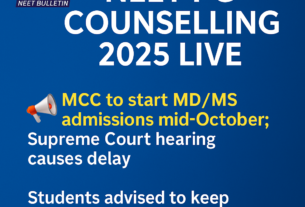Supporting NEET Young People : NEET, or Not in Education, Employment, or Training, represents a significant challenge for young people. Many individuals in this demographic face barriers that inhibit their ability to engage with education or employment opportunities. Recognizing their needs is vital for providing adequate support, and overcoming data sharing fears is a crucial step in this process.
Concerns About Privacy and Security
One of the primary concerns surrounding data sharing is the privacy of those involved. Young NEET individuals may hesitate to share their information due to fears of misuse or breaches. This reluctance can hinder initiatives aimed at aiding their reintegration into education or work settings. It is essential that stakeholders create transparent systems that prioritize data security while fostering trust among these young people.
It is deeply troubling that nearly one million young people in the UK are now Not in Education, Employment, or Training (NEET). To address this, policymakers have introduced initiatives such as Youth Guarantee Trailblazers, Connect-to-Work and processes for early identification of at-risk youth. A key component of many of these efforts is the effective use and sharing of data between different organisations to identify and support youth who are NEET or at risk of becoming NEET. However, data-sharing is a lot more complicated than it appears.
NEET status often stems from multiple overlapping risk factors, including socio-economic barriers, mental health issues and educational disengagement. Various agencies—jobcentres, schools, colleges, and the NHS—collect relevant data, but commissioners in the recently launched Skills Commission inquiry, Earning or Learning: A New Agenda for Youth NEET Reduction, have highlighted significant barriers to accessing and sharing data across agencies.
The most frequently cited obstacle is the General Data Protection Regulation (GDPR), which is a set of rules aimed at giving individuals more control over how their data is collected and used. GDPR is perceived as preventing frontline implementers from identifying individuals who may be NEET or at risk of becoming NEET. Fear of legal consequences discourages organisations from sharing personal data, leading to inefficient service delivery and missed opportunities for targeted intervention. However, our research suggests that the issue lies not with GDPR itself, but with a lack of clarity on how the law applies to frontline NEET reduction efforts. Three key challenges must be addressed.
Building Supportive Frameworks
To effectively support NEET young people, a framework that emphasizes collaboration is critical. Organizations, educational institutions, and employment services must communicate openly and establish protocols that reassure young individuals about the safeguarding of their personal information. By addressing data sharing fears, we can better understand the specific needs of NEET youths, leading to tailored interventions that empower them and enhance their chances of success.
Many local authorities lacking expertise
First, GDPR defines “processing” broadly, covering everything from data collection to analysis and sharing. This ambiguity creates uncertainty, making service providers hesitant to act for fear of non-compliance. Without clear guidelines on what constitutes permissible processing in the context of NEET reduction, useful data with one organisation remains inaccessible to others.
Secondly, many local authorities lack the expertise and infrastructure for secure data-sharing. Without proper training and investment, GDPR is perceived as a barrier rather than a framework for responsible and effective data use. Upskilling programmes for civil servants like One Big Thing should expand to local government officials as well.
Thirdly, confusion over the principle of lawful basis further complicates matters. GDPR requires a lawful basis for data processing. Many assume this means explicit consent is necessary for all data processing. However, the Information Commissioner’s Office (ICO) guidance clarifies that a public body having statutory responsibility to serve certain members of the public is a valid lawful basis. Yet, statutory responsibility for NEET reduction in the 16-24 age group is fragmented.




